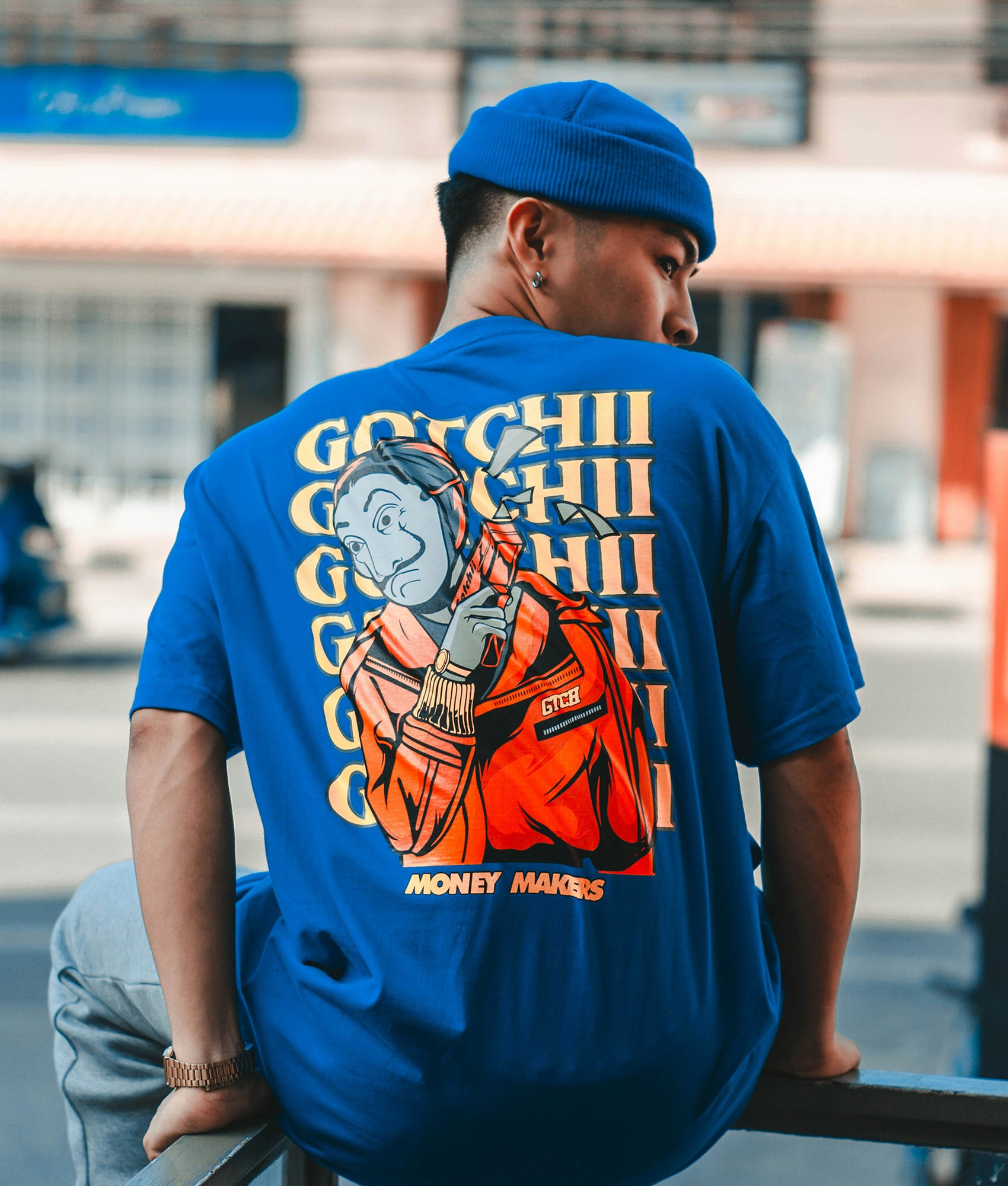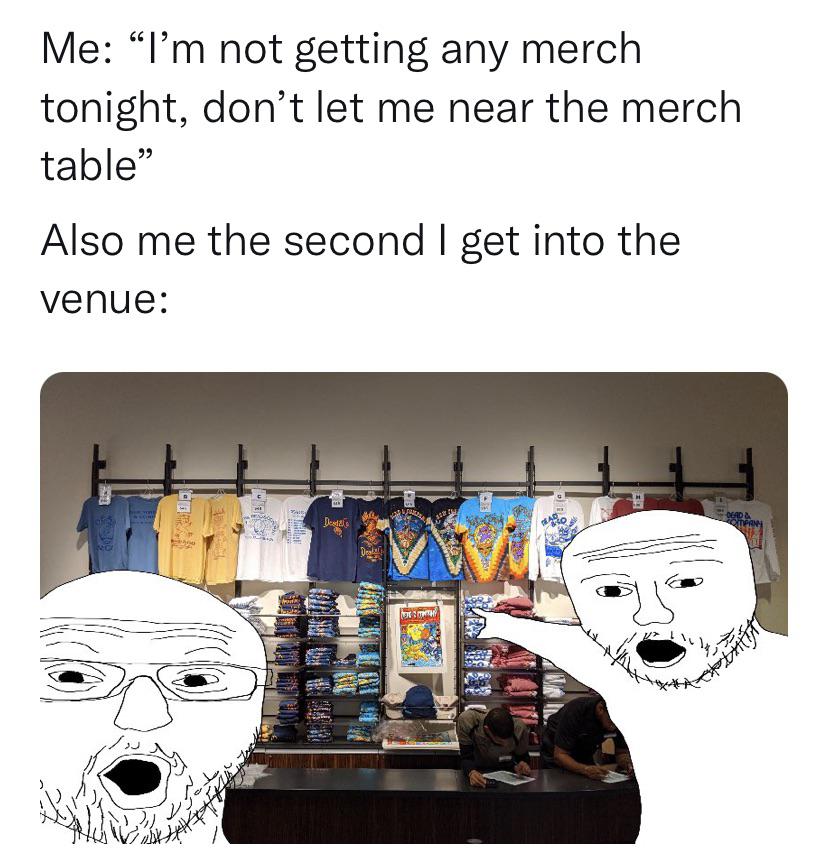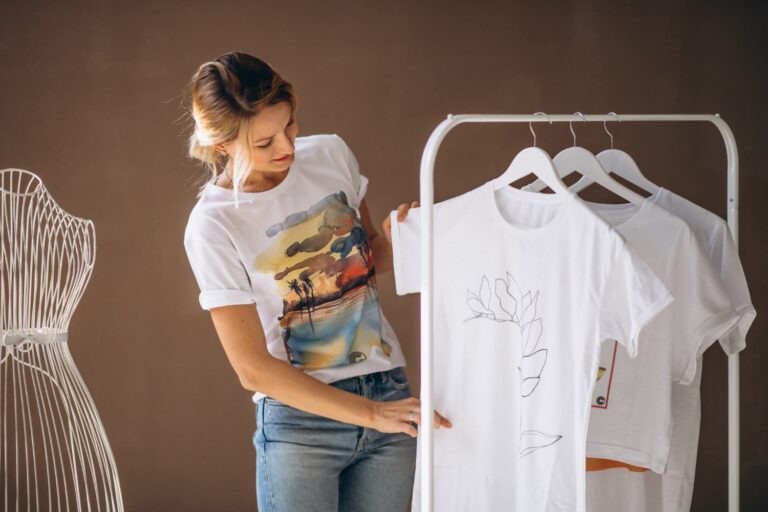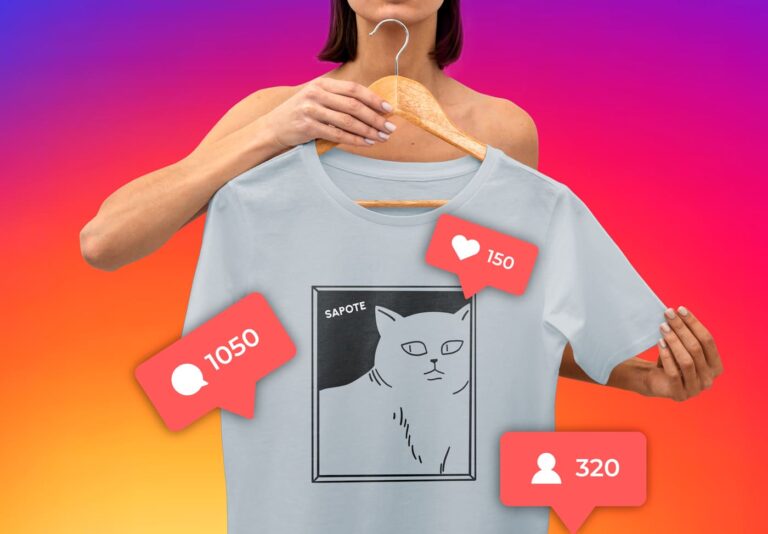Create your own merch – how it works

hejdi
June 11, 2025
Want to start selling your own merch – but not sure how it all fits together? In this guide, we’ll walk you through how to build your own merch setup with the right platforms.

What is merch – and why is it so big?
Merch, short for merchandise, is products with custom prints that are linked to a brand, a band, a YouTuber – or yourself. It can be anything from t-shirts and mugs to tote bags, hats and stickers. The purpose? To spread a message, build a sense of community or just make some cash in a smart and fun way.
And it has really exploded! What started with band shirts at concerts is now everywhere – in schools, at fairs, on social media. Creators are printing their catchphrases on tote bags, small businesses are making their own collections and influencers are building their own brands with hoodies and caps.
We love to show off what we like – and we love stuff that feels personal. Add to that the ability to create short-run merch quickly and easily online, and it’s no wonder it’s become a megatrend. Want to be part of it? It’s easy as pie.

Who can create merch? (Spoiler: everyone)
Merch is ideal for creators and influencers who want to build their own brand world and get closer to their followers. It’s a way to turn fans into ambassadors – they carry your messages, slogans or designs and spread your vibe without you having to say a word. Using Instagram to sell merchandise, for example, can quickly boost your store’s sales.
For creators, merch means a chance to create an extra income stream, which goes straight from passion to wallet. You can design everything from t-shirts and hoodies to hats and mugs, fully customized to your personal style or your community’s preferences.
Influencers use merch to create a deeper connection with their audience. It’s like a digital handshake – followers who buy your merch show that they’re really with you, and it builds loyalty while giving you more opportunities to grow.
And the best part? You don’t need to be a big brand to get started. With print-on-demand and smart platforms, you can do small runs, test different designs and grow at your own pace, without big investments.
So whether you’re just starting to build your following or already have thousands of fans, merch is a great tool to take your creative journey to the next level.
Platforms for making your own merch
When it comes to creating and selling merch, there are several platforms to help you all the way from design to delivery. Here are some of the most popular – with Hejdi at the top:
- Hejdi
A Swedish print-on-demand platform perfect for creatives and influencers. Design online and sell print on demand or in bulk. Local support and fast deliveries in the Nordics. Print on t-shirts, hoodies and caps. - Spreadshirt
One of the largest international print-on-demand services. Offers many products and opportunities for own shops, but delivery times are slightly longer and customer support can feel more anonymous. - TeamShirts
Good for both print-on-demand and bulk orders, especially for events and associations. Has the option of in-house print and stock management, which suits larger volumes. - Printful
Global player with a large product range and advanced integration possibilities with e-commerce platforms such as Shopify, WooCommerce and Etsy. Suitable for those who want to scale up their merch business. - Printify
Similar to Printful with a wide network of printers worldwide. Affordable and flexible, with many products and options for customized prints. - TeeSpring (Spring)
Known for its easy start-up and strong social media connection, making it easy to sell merch directly to followers without an online store. - Redbubble
Marketplace and print-on-demand in one, where creators can sell their designs on everything from clothing to accessories. Suitable for those who want to reach a wide audience without building their own shop. - TeePublic
Similar to Redbubble, with a focus on artistic and niche designs. A great platform for creators who want a ready-made audience and sales without their own inventory. - Zazzle
Offers great opportunities to customize products and design merch in many categories. Great for creators who want to experiment with different types of products.
Selling merchandise – through your own shop or marketplace?
When you start selling your merchandise, you are often faced with the choice between building your own online shop or using an existing marketplace. Both options have their unique strengths and challenges that can affect how you reach your customers and build your brand.
In addition to a platform for selling, you also need to get followers to visit your shop and make a purchase. Read our ultimate guide on how to sell merch on Instagram.
Your own online shop gives you full control over the entire customer experience. You can design your site exactly how you want it, control the entire buying process and create a personal relationship with your customers. Because you own the entire customer journey, you can easily customize everything from product presentation to marketing. Plus, you’ll be able to collect valuable customer data that can be used to improve future promotions and sales. But running your own shop requires more time and technical work. You need to set up the site, drive traffic to it and handle customer service when problems arise. It’s more responsibility, but also more freedom.
On the other hand, there are marketplaces like Etsy, Spreadshop and Redbubble. They offer a quick and easy way into the market because you get access to an already established customer base. The platform takes care of payments, shipping and often customer service too, making it easy for you to focus on design and marketing. But the downside is that you have less control over how your brand is presented and have to compete with many other sellers. In addition, platforms often charge fees or commissions, which can affect your profits. The ability to collect customer data is also limited, which can make it harder to build a long-term customer relationship.
If you acquire (each month) visitors and makes a purchase with a product price of we think you will earn about 0 SEK
Can I sell merch without my own business?
The short answer: Yes – but it depends on the scale. You can get started selling merch without registering a business, but there are a few things you need to be aware of when it comes to tax, VAT, and regulations from the Swedish Tax Agency.
What applies to hobby activities?
- You sell on a non-profit basis and not regularly.
- You have no online shop or active marketing.
- You do not need to register a company.
- You still have to declare the income privately in box T2.
- You cannot deduct VAT or invoice with F-tax.
When do I have to start a business?
- Sells merchandise for profit.
- Have a regular sale.
- Run a webshop or actively market yourself.
- Have a clear branding or range.
What is the €80,000 rule?
If you sell merchandise for less than €80 000 per year, you don’t need to worry about VAT.
However, if you sell for more than SEK 80 000 per year, you must register for VAT. You must then add VAT to the price and declare it to the Swedish Tax Agency.



